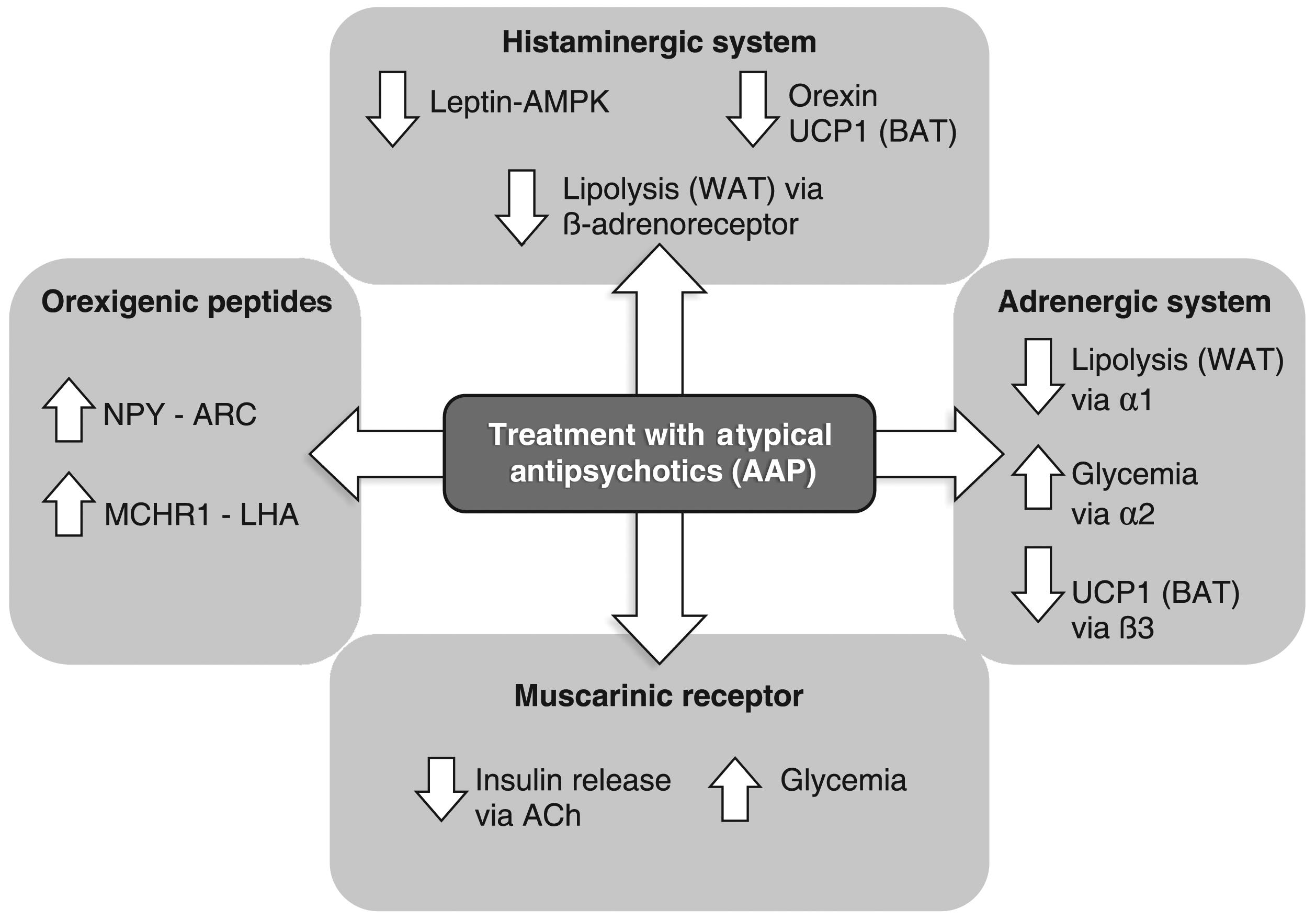Objective:
Atypical antipsychotics (AAPs) promote obesity and insulin resistance. In this regard, the main objective of this study was to present potential mechanisms and evidence concerning side effects of atypical antipsychotics in humans and rodents.
Method:
A systematic review of the literature was performed using the MEDLINE database. We checked the references of selected articles, review articles, and books on the subject.
Results:
This review provides consistent results concerning the side effects of olanzapine (OL) and clozapine (CLZ), whereas we found conflicting results related to other AAPs. Most studies involving humans describe the effects on body weight, adiposity, lipid profile, and blood glucose levels. However, it seems difficult to identify an animal model replicating the wide range of changes observed in humans. Animal lineage, route of administration, dose, and duration of treatment should be carefully chosen for the replication of the findings in humans.
Conclusions:
Patients undergoing treatment with AAPs are at higher risk of developing adverse metabolic changes. This increased risk must be taken into account when making decisions about treatment. The influence of AAPs on multiple systems is certainly the cause of such effects. Specifically, muscarinic and histaminergic pathways seem to play important roles.
Neuroendocrinology; schizophrenia; drug side effects; antipsychotics; biological markers

